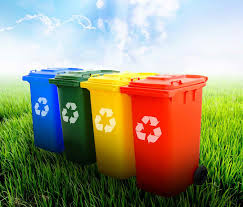Tips for Landscapers to Reduce Waste
Green business is a hot-ticket commodity in many parts of the country. Virtually every industry has a market segment of green specialists offering services marketed towards consumers who prioritize the environment and sustainable alternatives. Many business owners find that their customers are willing to pay more for a highly quality product or service that is more sustainable and less destructive to the environment locally and globally.
For this reason, many landscapers and design-build firms market themselves as environmentally conscience or even “green” in their techniques and material choices. After all, the companies that make our environments beautiful should aim to keep them that way. However, their dedication to green practices may not extend beyond their choice of native plants. Landscapers, golf courses maintenance crews, and other routine maintenance providers ought to work towards developing more sustainable procedures in their day-to-day work. Here are three practical ways that lawn and tree care companies can improve their practices and reduce waste.
1. Use recycled materials for landscaping
The EPA advises that landscapers and home owners recycle waste from their landscaping projects, including green waste (suggesting mulching some byproducts), lumber, brick, concrete, and asphalt. Obviously, the more materials which we can salvaged for reuse in other projects, the better for the customer’s budget and for the environment. This may require the innovative use of old, weathered materials in new, thoughtful ways by other customers.
2. Compost green waste
Composting is a great small-scale solution for individual home owners, some of whom may choose to hire a lawn and tree care company which offers composting services. Composting can also be done in large-scale facilities or landfills, but may have some drawbacks, such as smell which affects the surrounding community. Often times, websites run by your state or local government provide more information about how to set up effective compost piles in either home-made or industrial compost bins. Landscapers can help educate their clients about the benefits of home composting and assist with the set up of systems that will radically reduce their waste output.
3. Recycle lawn grass clippings
While the EPA’s suggestions target landscaping projects instead of the byproducts of routine maintenance, lawn and tree care companies as well as golf course maintenance crews dispose of a significant amount of lawn clipping grass into non-composting landfills. In fact, the amount of lawn clippings produced in 6 months in the United States could feed all of our cattle for a year.
